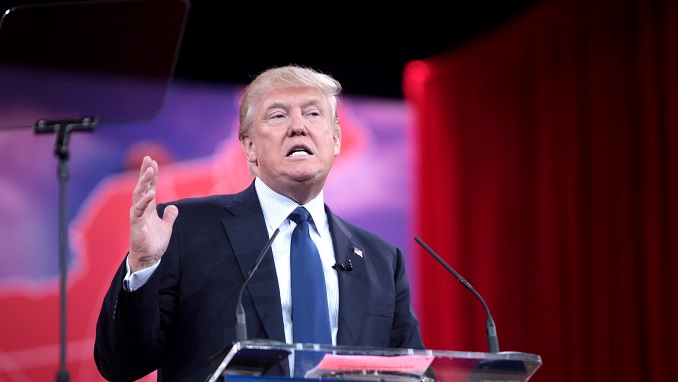United States President Donald Trump talked about the challenges that “rivals like China and Russia” pose to his country in his first official State of the Union speech, Radio Free Europe reported.
“As we rebuild America’s strength and confidence at home we are also restoring our strength and standing abroad,” Trump said, “around the world, we face rogue regimes, terror groups and rivals like China and Russia that challenge our interests, economy, and values.”
In his speech, Trump steered clear of any reference to the special counsel investigation about Russian meddling in the 2016 U.S. elections that has shadowed his administration.
It was a noteworthy omission since the president has rarely shied away from expressing his thoughts on a probe that he has derided as a “hoax” and a “witch hunt.”
According to the administration’s new National Defense Strategy revealed this month, the Pentagon singles out China and Russia as the “central challenge” faced by the U.S. armed forces.
“In confronting these dangers, we know that weakness is the surest path to conflict, and unmatched power is the surest means of our defense,” the President added.
Trump also asked the U.S. Congress for more money for defense spending to rebuild the military.
“As part of our defense, we must modernize and rebuild our nuclear arsenal, hopefully never having to use it, but making it so strong and powerful that it will deter any acts of aggression,” Trump underscored.
Also on Tuesday, members of the U.S. Congress, who passed new sanctions on Russia nearly unanimously last summer, criticized President Donald Trump for not imposing them, accusing him of being soft on his Russian counterpart, Vladimir Putin.
The Trump administration said on Monday it would not announce sanctions for now under the new law, intended to punish Moscow for meddling in the 2016 U.S. presidential election. Russia denies interfering in the campaign.
Democrats blasted the decision, accusing Trump of failing to do everything possible to deter any future foreign election interference. Trump, who wanted warmer ties with Moscow, opposed the legislation as it worked its way through Congress and signed it reluctantly in August.
Meanwhile, the FBI inquiry into alleged Russian collusion in the U.S. election has been given a second memo that independently set out some of the same allegations made in a dossier by Christopher Steele, a British former spy, The Guardian reported.
Last year, a controversial dossier compiled by Steele sent shockwaves through Washington. It contained unverified claims that President Donald Trump had deep ties to Russia and was potentially compromised by the Russians.












